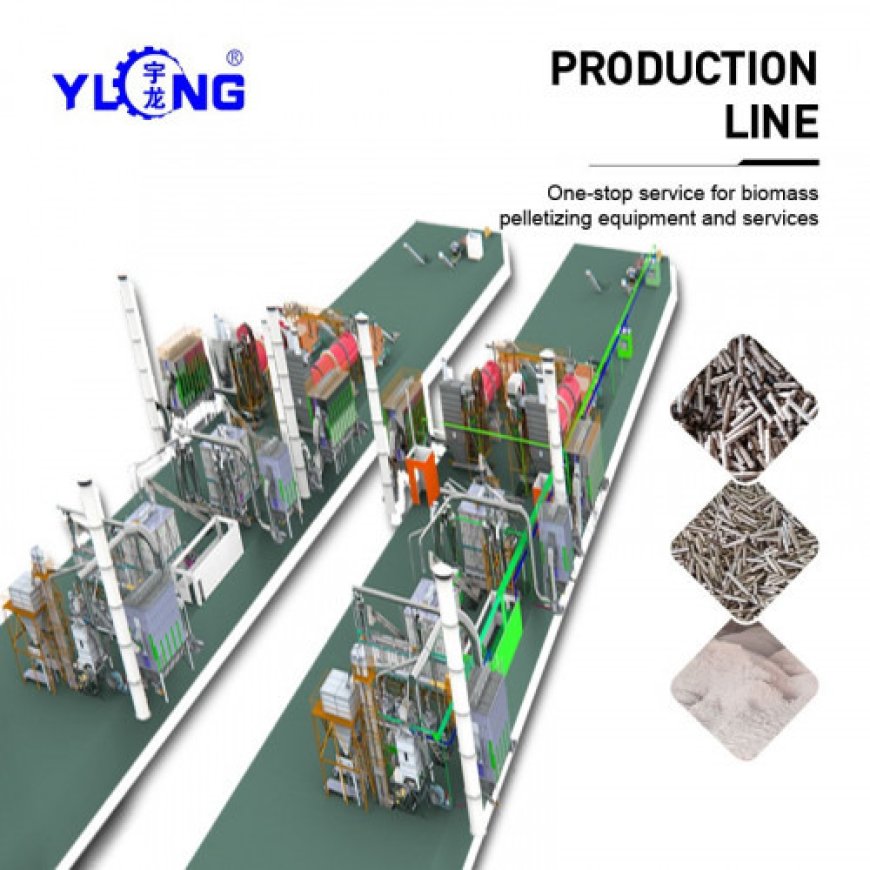Economic Benefits of Investing in Biomass Pellet Production Plants
This blog explores the various economic advantages of investing in biomass pellet production line plants, highlighting their profitability, energy cost savings, and contributions to local economies.

The biomass pellet industry has been gaining significant traction in the global market, driven by increasing awareness of the need for sustainable energy sources and the benefits of reducing carbon footprints. Biomass pellet production, which transforms agricultural waste, wood, and other organic materials into high-density fuel pellets, presents an attractive investment opportunity with considerable economic benefits.

This blog explores the various economic advantages of investing in biomass pellet production line plants, highlighting their profitability, energy cost savings, and contributions to local economies.
High Demand, High Returns
The global demand for renewable energy is growing rapidly, with biomass pellets playing a crucial role in this sector. They serve as an efficient and green alternative to traditional fossil fuels in heating systems and power plants. This surge in demand has created a robust market for biomass pellets, attracting savvy investors looking for promising returns. The escalating need for sustainable energy solutions ensures a long-term demand for biomass pellets, providing investors with a secure and profitable investment opportunity.
Subsidies and Incentives
Many governments worldwide offer subsidies, incentives, and supportive regulations to encourage the production and use of biomass pellets. These financial incentives can significantly reduce the initial capital investment and operational costs, making biomass pellet plants more economically viable. Additionally, these policies are indicative of the growing support for renewable energy industries, giving investors peace of mind about the stability and longevity of their investments.
Energy Cost Savings
For industries and individuals alike, biomass pellets offer substantial energy cost savings over traditional energy sources. By investing in a biomass pellet production plant, investors tap into a lucrative market of consumers seeking to reduce their energy bills. Furthermore, operating a pellet plant itself can be more energy-efficient and cost-effective, especially if the plant utilizes its biomass waste products for energy generation, creating a closed-loop system that maximizes efficiency and profitability.
Employment and Local Economic Growth
Investing in a biomass pellet production plant can significantly impact local economies. These plants create direct employment opportunities in operations and maintenance, as well as indirect jobs in supply chains, logistics, and related services. The increased economic activity can stimulate growth in rural areas where employment opportunities might be scarce, providing substantial social and economic benefits to local communities.
Waste to Wealth
The biomass pellet production process converts agricultural residues, forest waste, and other organic materials into valuable commodities. This transformation not only generates profits but also helps in managing agricultural and forestry waste, contributing to environmental cleanliness and sustainability. By turning waste into wealth, biomass pellet production plants create a unique economic opportunity that supports environmental conservation efforts.
Contribution to Energy Security
By investing in biomass pellet production, investors contribute to the diversification and security of energy supplies. Biomass pellets can be produced locally, reducing dependence on imported fossil fuels and enhancing a country's energy security. This aspect becomes increasingly important as global energy markets experience volatility and countries seek to minimize their vulnerability to external supply disruptions.
Riding the Wave of Green Financing
With the global shift towards green investments, biomass pellet production projects are becoming increasingly attractive to investors seeking sustainable and ethical investment opportunities. Green financing initiatives and eco-friendly investment funds are more inclined to support projects that demonstrate a positive environmental impact, such as biomass pellet production plants, providing additional funding avenues and financial support to accelerate their development and expansion.
In Conclusion:
The economic benefits of investing in biomass pellet production plants extend beyond profitability, encompassing energy savings, positive environmental impacts, contributions to local economies, and the promotion of energy security. As the world continues to pivot towards sustainable energy solutions, biomass pellet production stands out as a promising avenue for investors aiming to capitalize on the renewable energy sector's growth. By harnessing the power of organic waste and converting it into a valuable energy resource, biomass pellet production not only represents a sound financial investment but also a step toward a more sustainable and energy-secure future.
For those considering starting or expanding a large pellet production line, Shandong Yulong Machine Co., Ltd. offers a comprehensive range of equipment and expertise to support your needs.
What's Your Reaction?



















![Safe Abortion pills[[+971521786258]] Doha Qatar/Ar Rayyan Qatar/Umm Salal Mu?ammad Qatar/Al Wakrah](https://news.bangboxonline.com/uploads/images/202501/image_430x256_679bc869b24fb.jpg)


